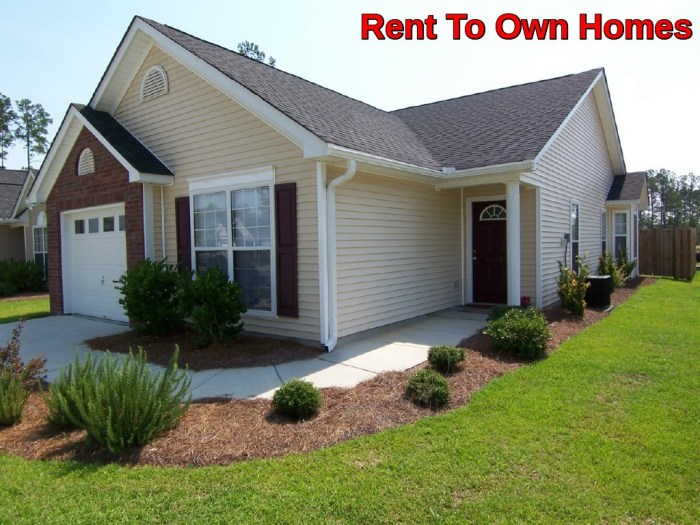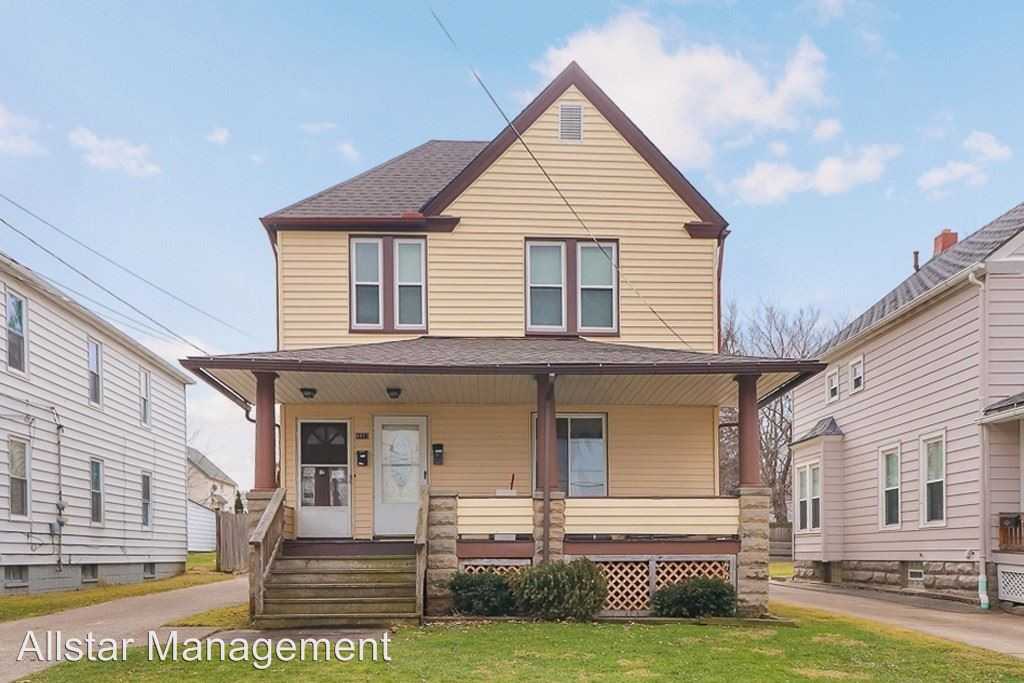Rent to Own Houses in Cleveland Ohio
Rent-to-Own Homes in Cleveland, Ohio: A Market Overview
Rent to own houses in cleveland ohio – The rent-to-own market in Cleveland, Ohio, presents a unique pathway to homeownership, particularly appealing to individuals who may face challenges securing traditional financing. This market is influenced by several factors, including the overall housing market conditions, interest rates, and the availability of suitable properties. Understanding these dynamics is crucial for prospective buyers.
Rent-to-Own Market Trends in Cleveland
Cleveland’s rent-to-own market reflects national trends, with fluctuations influenced by economic conditions and local housing inventory. Currently, competition for rent-to-own properties can be moderate to high, depending on the neighborhood and property type. Interest rates, while impacting traditional mortgages, also influence the terms and affordability of rent-to-own agreements. The availability of suitable properties suitable for rent-to-own arrangements also plays a significant role in market dynamics.
Typical Characteristics of Rent-to-Own Homes in Cleveland Neighborhoods
Rent-to-own homes in Cleveland vary widely depending on the neighborhood. The following table provides a general overview, noting that prices and features can fluctuate significantly.
| Neighborhood | Average Home Price | Average Monthly Rent | Typical Home Features |
|---|---|---|---|
| Ohio City | $250,000 – $400,000 | $1800 – $2500 | Rehabilitated historic homes, lofts, modern townhouses; often featuring updated kitchens and bathrooms. |
| Tremont | $200,000 – $350,000 | $1500 – $2200 | Victorian-era homes, renovated bungalows; some with original details preserved. |
| University Heights | $180,000 – $300,000 | $1300 – $1900 | Larger single-family homes, often with yards; some requiring updates. |
| East Cleveland | $100,000 – $200,000 | $900 – $1500 | More affordable options, often requiring significant renovations. |
Rent-to-Own vs. Traditional Home Buying in Cleveland
Rent-to-own offers an alternative to the traditional home-buying process. While it may provide a path to ownership for those with credit challenges or limited savings, it’s essential to weigh the pros and cons. Traditional home buying typically requires a larger down payment and better credit score, but may offer more favorable financing options in the long run. Rent-to-own contracts can have higher overall costs due to built-in purchase options and potentially less favorable terms compared to traditional mortgages.
Financial Aspects of Rent-to-Own Agreements
Understanding the financial structure of a rent-to-own contract is crucial. These agreements typically involve a down payment, monthly rent payments, and a predetermined purchase price. It’s vital to carefully review all terms before committing.
Structure of Rent-to-Own Contracts in Cleveland
A typical rent-to-own contract in Cleveland Artikels the purchase price, a down payment (often lower than in a traditional sale), monthly rent (which includes a portion applied towards the purchase price), and the length of the lease-purchase agreement. The contract also specifies how much of the rent is credited towards the purchase price (the rent credit) and the conditions for exercising the purchase option.
Penalties for default are clearly stated. It’s crucial to have a lawyer review the contract before signing.
Examples of Rent-to-Own Scenarios
Let’s examine a few scenarios to illustrate potential financial outcomes.
- Scenario 1 (Favorable): A buyer enters a 3-year rent-to-own agreement with a $5,000 down payment, $1,500 monthly rent (with $500 credited toward the purchase price), and a final purchase price of $150,000. After three years, the buyer has accumulated $18,000 in credits, reducing the final amount due. This shows significant progress towards homeownership.
- Scenario 2 (Less Favorable): A buyer enters a 5-year agreement with a $10,000 down payment, $1,200 monthly rent (with $300 credited), and a $180,000 purchase price. While the initial down payment is higher, the lower rent credit may result in a higher final cost after accounting for interest or other fees that might not be explicitly included in the monthly rent.
- Scenario 3 (Challenging): A buyer defaults on payments before the end of the lease-purchase agreement. They lose the down payment and accumulated rent credits, and may face additional legal and financial repercussions.
Tax Implications of Rent-to-Own Agreements
Both buyers and sellers need to understand the tax implications. For the buyer, the portion of rent applied toward the purchase price might be considered a capital expenditure, potentially affecting tax deductions. For the seller, the transaction may be treated as a sale, triggering capital gains taxes. Consult a tax professional for personalized advice.
Legal and Regulatory Considerations
Rent-to-own agreements are subject to legal regulations. Understanding these safeguards and potential risks is vital for both parties.
Legal Requirements and Protections
Ohio law governs rent-to-own contracts, providing certain protections for both buyers and sellers. These laws typically address issues like contract clarity, disclosure requirements, and dispute resolution. It’s essential to ensure the agreement complies with all applicable laws and regulations. The contract should clearly Artikel all terms and conditions, including contingencies, default clauses, and dispute resolution mechanisms.
Common Pitfalls and Risk Mitigation

Source: redfin.com
Potential pitfalls include unclear contract terms, inadequate property inspections, and unforeseen repair costs. Mitigation strategies include thorough due diligence, professional inspections, and legal counsel to review the contract before signing. Understanding the implications of default and the potential loss of invested funds is crucial.
Checklist for Rent-to-Own Transactions

Source: freelistingsrenttoownhomes.com
Considering rent-to-own houses in Cleveland, Ohio? It’s a smart way to build equity while you live. If you’re still exploring your options, you might want to check out other private houses to rent before committing to a long-term purchase. Ultimately, finding the right property, whether rent-to-own or traditional rental, depends on your individual needs and financial situation in the Cleveland housing market.
A comprehensive checklist should include:
- Thorough property inspection
- Review and understanding of the contract by legal counsel
- Verification of seller’s ownership and title
- Agreement on repair responsibilities
- Documentation of all payments
- Clearly defined purchase option terms
Finding and Evaluating Rent-to-Own Properties
Locating and assessing suitable rent-to-own properties requires a strategic approach.
Locating Rent-to-Own Properties
Strategies include online searches (real estate websites, Craigslist), working with real estate agents specializing in rent-to-own properties, and networking within the community. Offline resources such as local newspapers and flyers can also be helpful. It is crucial to verify the legitimacy of any listings and to thoroughly research the property and the seller.
Key Factors in Property Evaluation
When evaluating a potential property, consider:
- Property condition and needed repairs
- Neighborhood safety and desirability
- Market value and purchase price
- Terms of the rent-to-own agreement
- Potential for future appreciation
Neighborhood Comparison for Rent-to-Own Buyers, Rent to own houses in cleveland ohio
| Neighborhood | Pros | Cons | Average Rent-to-Own Price |
|---|---|---|---|
| Ohio City | Vibrant, walkable, close to amenities | High demand, potentially higher prices | $250,000 – $400,000 |
| Tremont | Historic charm, strong community | Limited parking, potentially older homes needing maintenance | $200,000 – $350,000 |
| University Heights | Family-friendly, good schools | Further from downtown, potentially higher commute times | $180,000 – $300,000 |
| East Cleveland | More affordable options | May require significant renovations, potentially higher crime rates | $100,000 – $200,000 |
Working with Real Estate Professionals
Real estate agents, lawyers, and financial advisors play crucial roles in successful rent-to-own transactions.
Role of Real Estate Professionals
Real estate agents can assist in property searches, negotiations, and contract review. Lawyers ensure the legal aspects are handled correctly, and financial advisors help assess affordability and long-term financial implications.
Benefits of Professional Advice
Professional guidance minimizes risks, ensures compliance with regulations, and optimizes financial outcomes. They provide expert insights, negotiate favorable terms, and help navigate complex legal and financial aspects.
Step-by-Step Guide to Working with Professionals
- Identify your needs and budget.
- Find a reputable real estate agent specializing in rent-to-own.
- Begin your property search with the agent.
- Engage a lawyer to review the contract.
- Consult a financial advisor to assess affordability and long-term implications.
- Complete the transaction with professional guidance.
Illustrative Examples of Rent-to-Own Successes and Challenges: Rent To Own Houses In Cleveland Ohio

Source: zumpercdn.com
Real-world examples illustrate the potential benefits and risks of rent-to-own agreements.
Rent-to-Own Success Stories
One example could be a young couple in Ohio City who successfully completed a rent-to-own agreement on a renovated loft apartment. They made consistent payments, maintained the property, and ultimately purchased the property at the agreed-upon price. Their diligent approach and professional guidance enabled them to achieve their homeownership goal.
Rent-to-Own Challenges and Lessons Learned
Conversely, a family in East Cleveland might have encountered challenges due to unforeseen repair costs and difficulties securing financing for the final purchase. Their experience highlights the importance of thorough property inspections and securing sufficient funds for potential repairs and the final purchase price. Lessons learned include the importance of due diligence and contingency planning.
- Challenge: Unforeseen repair costs exceeding the buyer’s budget.
- Lesson: Thorough inspections and contingency planning are crucial.
- Challenge: Difficulty securing financing for the final purchase.
- Lesson: Pre-qualifying for financing before entering the agreement is essential.
Long-Term Financial Implications: Rent-to-Own vs. Traditional Home Buying
A comparative analysis of hypothetical scenarios demonstrates the long-term financial implications. For example, a traditional mortgage may have lower overall costs compared to rent-to-own, especially if interest rates are favorable. However, rent-to-own might offer a path to homeownership for those who wouldn’t qualify for a traditional mortgage. The best option depends on individual circumstances and financial situations.
FAQ Overview
What are the typical credit score requirements for rent-to-own agreements in Cleveland?
Credit score requirements vary depending on the seller and the specific terms of the contract. However, generally, a higher credit score improves your chances of approval and securing favorable terms.
How long is the typical lease-purchase agreement in Cleveland?
Lease-purchase agreements typically range from 1 to 5 years, depending on the agreement between the buyer and seller.
What happens if I can’t afford to buy the house at the end of the lease-purchase agreement?
The contract will Artikel the consequences. Typically, you forfeit any money paid towards the purchase price, and the seller may retain the property.
Are there any specific tax advantages to rent-to-own agreements in Ohio?
Tax implications can be complex and vary based on individual circumstances. Consult with a tax professional for personalized advice.




















